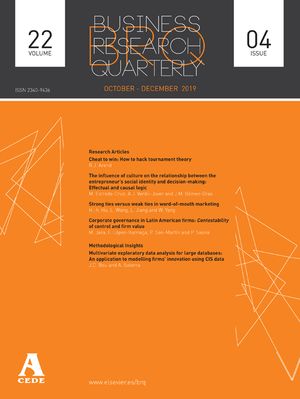Este artículo aborda el proceso de internacionalización de la empresa, utilizando las aportaciones de la Teoría de la Empresa Basada en el Conocimiento (TBC) para complementar la literatura sobre negocios internacionales y desarrollar un marco conceptual sobre la contribución del conocimiento experimental en la obtención de mejores resultados en los mercados exteriores. Para ello, utilizando la metodología SEM, se relacionan los distintos niveles de conocimiento experimental sobre el stock de conocimiento de la empresa y la influencia de este stock en la adaptación de las capacidades organizativas a su entorno de mercado. Asimismo, se aporta evidencia empírica que relaciona la Gestión del Conocimiento con los resultados que una muestra de pequeñas y medianas empresas exportadoras andaluzas obtienen en mercados exteriores.
This article examines the internationalization process of the firms, integrating contributions from the knowledge-based theory of the firm and the literature on international business to develop a conceptual framework for the contribution of experiential knowledge to improved performance in foreign markets. For this purpose, the structural equation modeling methodology is used to relate the different levels of experiential knowledge with the firm's stock of knowledge and the influence of this stock of knowledge on the adaptation of organizational capabilities to the market environment. Likewise, the work provides empirical evidence relating knowledge management to foreign market performance in a sample of Spanish small and medium-sized export firms.




